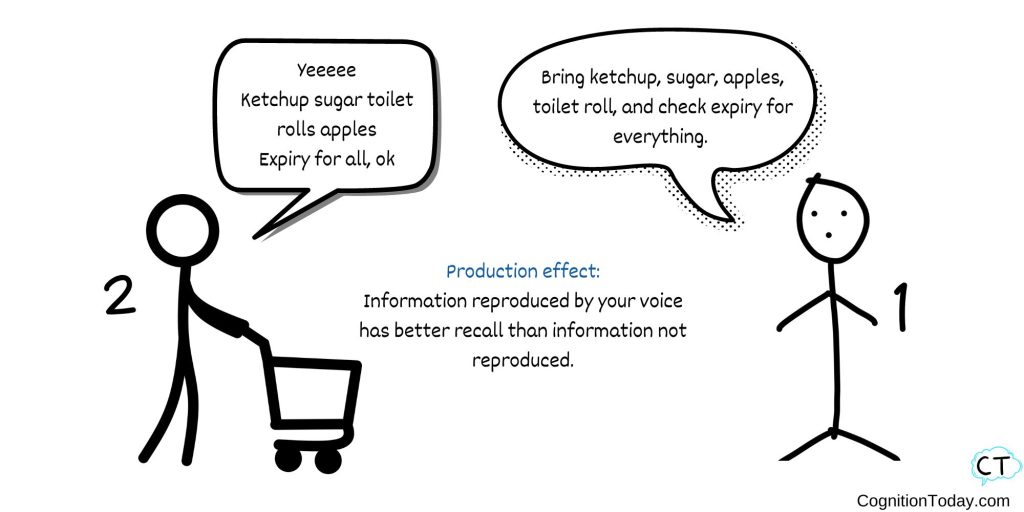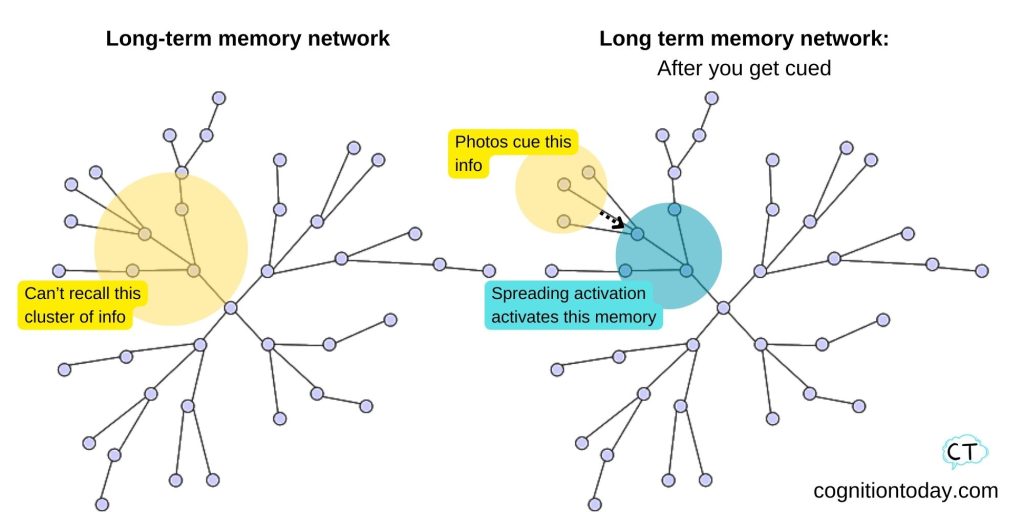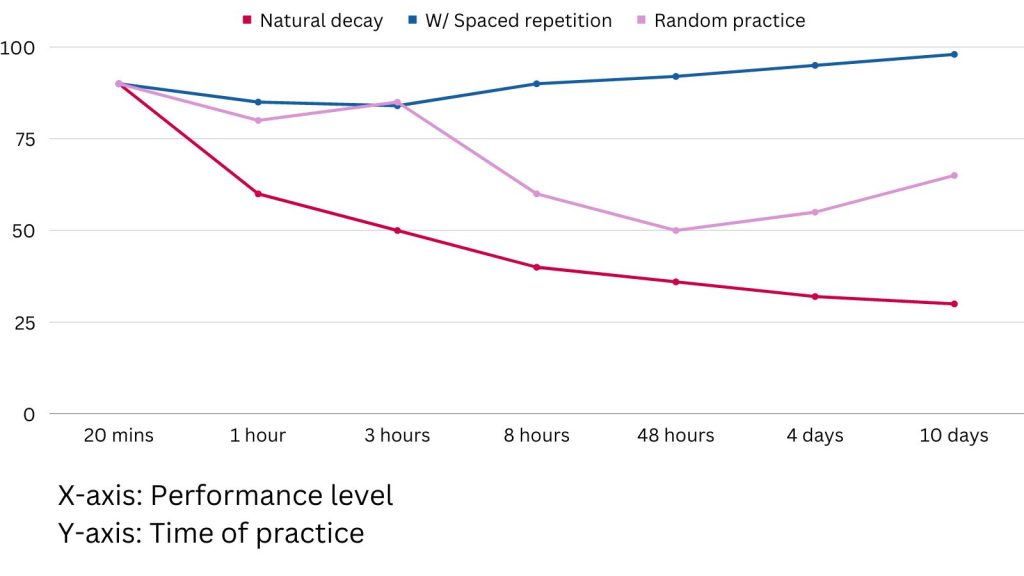As we get older, our memory declines. This is age-related memory loss. It’s natural and expected, but sometimes an indication of Alzheimer’s disease. If you are just noticing a decline in your memory, I recommend using these memory-enhancing habits every day. Regaining your old memory strength is completely possible because the brain is very capable of re-wiring itself even at 100 years of age. And that also protects against brain diseases.
Habits here are more about what you can do right now instead of what you should do for a long time to counter age-related memory loss. If you are past 40 years and see a drop in memory, this is for you. If you are still in your teens and twenties, you might benefit more from the tips in this article instead.
The habits here will improve your:
- Overall recall for newly learned information.
- Your working memory (the ability to hold information in thought).
- Ability to dig through your old memories and recall forgotten details.
1. Attempt to remember all your OTPs, token numbers, and passcodes
Use chunking as a way to simplify your OTPs (one-time passwords) or passcodes. Chunking is essentially making small groups of information and treating it as one single unit. So, split the number into groups of 2 or 3 digits. E.g., If your passcode is 520391, remember it as 5-twenty and 391. Passcodes come unexpectedly – in a restaurant, in a login attempt, at a cashier, etc.
Avoid using your phone’s copy-paste or auto-fill options so you can really practice remembering. And, you’ll have many “tests” to start feeling confident that you can remember details.
This habit will improve working memory – your immediate ability to retain a certain amount of information and do some tasks with it. Being forgetful usually starts with losing working memory. Like forgetting how much tea powder you put in your pot when someone interrupts you with a call.
Tip: For all the passcodes and passwords you get for deliveries, logins, etc., try to recall them without looking at your phone.
2. Say things out loud, whisper them, or write them down
If you are starting to forget recently learned information like names, brands, ideas, etc., your short-term memory isn’t converting to long-term memory as efficiently as it used to. Quickly reinforcing short-term memory by saying things out loud and writing them improves memory consolidation and recall.
When humans produce information with words or typing, they remember it better because now the information is processed more actively with sensory components (sounds, finger movement, etc.). This is the production effect. Don’t forget to pay attention to what you say out loud or write down. Attention is always needed.
One principle of the brain is that dual-coded information tends to become stickier than single-coded information. Coding here means the sensory form in which it comes. So, if you hear it and say it out loud, you’ll remember it better than just hearing it. Similarly, if you see it written down and then mouth it again, you’ll remember better than just seeing it.

Tip: Write down the new information you learn or speak out loud immediately.
3. Trigger random memories from your past by looking at photos and texts
As we get older, there is idle time, and we tend to have more mindless behavior because, for many, there is no career/work obligation. In that idle time, some behaviors can re-activate old memories, which you now feel you have forgotten.
For example, if you are watching the news after lunchtime, take a few minutes out to revisit your old photos and texts. Information contained in them will trigger an associative network of information that forms your long-term memory. You may fail to recall that information directly, but getting “cued” to remember it by looking at photos can help you recall forgotten details again. Try to elaborate on those cues/details in the photos, and chances are you’ll start recollecting more pieces of your forgotten memories.
You can:
- Sort your files
- Visit social media
- Look at old photos
- Explore your own computer
- Talk with other people about events from the past
This works really well for 2 reasons.
One, memory decays over time naturally, so it’s use it or lose it. Only when you use (that is recall) the memory strengthens again. Or, in more general terms, it delays the memory decay a little bit further.
And two, memory is stored as a network of information with nodes. Attention then goes to one node and activates a nearby cluster of nodes. Then, it travels the network, one node at a time, picking up details of a memory. The cues you find in old photos and texts or random bits of info your friends talk about start the spreading activation process.

Tip: Spend some time randomly triggering your old memories by trying to elaborate on the details you see in old photos, old texts, old emails, and previous conversations.
4. Recall newly learned information after a short time delay
When you learn something new, the information starts getting encoded (gets represented in the brain), and then it starts consolidating (strengthens). Chances are your encoding is fine, but consolidation has become slow. A classic study technique called “spaced repetition” will help here.
For everyday new mundane information that you need to remember for a few days at least, like a name or a thing to buy while shopping, repeat it after a minute. During that minute, the brain starts consolidating the memory. But that goes on slowly. So, by forcibly recalling it after a delay, you are accelerating the consolidation process.
The standard method is: Recall after 1 minute, then recall after 20 minutes, then recall in 1 hour, and so forth. Each time, you counter memory decline and boost consolidation.

Tip: When you learn any new detail, strengthen its long-term memory by recalling it after 5 minutes, then 20 minutes, and then 3 hours.
Takeaway
If you are experiencing age-related memory loss and getting forgetful, build 4 new habits. Remember all your passwords and OTPs (working memory). Write down or speak out loud the new information you learn (production effect). Spend time triggering long-term memories that you could recall before by browsing your phone or files (spreading activation). And purposefully recall what you learn after increasing time delays (spaced repetition).
With these habits, your actual memory performance will improve. But sometimes, with age, with the realization that the body is declining, the confidence in memory also goes away. And for that, I suggest you check out these other habits (they are similar, but the approach is different)
If you want to help your younger loved ones retain their memory, they can take a holistic approach that becomes a part of their lifestyle, which I explain here. It speaks of social, physical, and mental activities.
And if you read this and thought, “Ha, I don’t need this, my memory is still great”, congratulations, you might just be a super-ager!

Hey! Thank you for reading; hope you enjoyed the article. I run Cognition Today to capture some of the most fascinating mechanisms that guide our lives. My content here is referenced and featured in NY Times, Forbes, CNET, and Entrepreneur, and many other books & research papers.
I’m am a psychology SME consultant in EdTech with a focus on AI cognition and Behavioral Engineering. I’m affiliated to myelin, an EdTech company in India as well.
I’ve studied at NIMHANS Bangalore (positive psychology), Savitribai Phule Pune University (clinical psychology), Fergusson College (BA psych), and affiliated with IIM Ahmedabad (marketing psychology). I’m currently studying Korean at Seoul National University.
I’m based in Pune, India but living in Seoul, S. Korea. Love Sci-fi, horror media; Love rock, metal, synthwave, and K-pop music; can’t whistle; can play 2 guitars at a time.



























